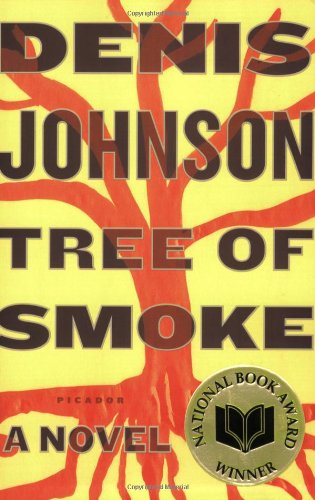Tree Of Smoke
William “Skip” Sands is training for his CIA job as a spy in Psychological Operations against the Viet Cong in 1960s South Vietnam. His present mission is to create a second, more concise catalogue of Vietnamese culture for his uncle, Colonel Francis Sands, using his entire card catalog system about Vietnam: nineteen thousand entries in chronological order. According to the Colonel, intelligence comes from the songs, stories and legends of the people themselves. So Skip experiences, throughout this alternately languid, surrealistic and frenetic wartime reality, South Vietnam’s inability to master the Viet Cong’s singular focus and willingness to act in “unthinkable sacrifice.”
In between, we get a sense of Skip’s dysfunctional family background through his interaction with his brother James, a connection that eerily parallels the military and psychological battle between North and South Vietnam. Eventually, he learns that Operation Tree of Smoke is about using a double agent and Skip to deliver misinformation about American military strategy and activities to the North, using “the tunnels, Project Labyrinth, the curling catacombs of the human ear.” Skip also falls in love with a compassionate Canadian nurse, someone alive enough to really care and, he thinks, who has a practical, tangible job that makes a difference.
Through Skip and his military colleagues, we get a sense of the global and personal reactions to JFK’s assassination, the Tet offensive, and the fall of Saigon and others’ perspective about this war right up to the 1980s. For those who were there or wish they were, this is an fresh, interesting look at a pivotal period in American and Vietnamese history, a panoramic presentation with a tragic ending for too many Americans.










